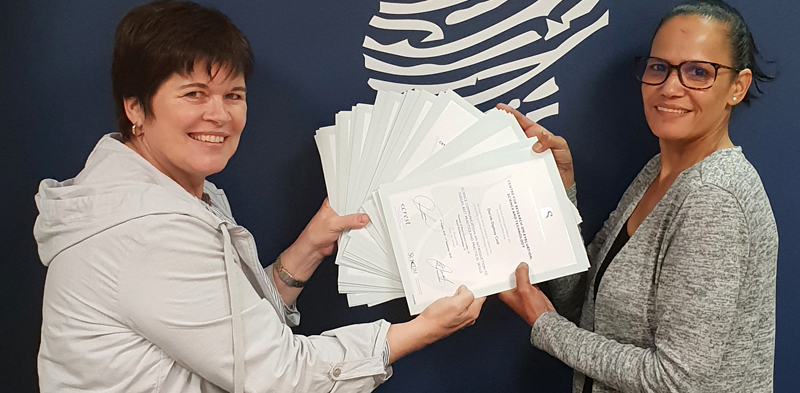4 December 2018
By Marina Joubert
The 67 participants from across Africa who successfully completed the 2018 CREST online course in science communication will be receiving their certificates soon. This is what some of the 2018 participants had to say:
I am so glad that I got this opportunity to do this course. I cannot speak highly enough about it. I welcome all that I have learnt during this course and can’t wait for the next one to take place in 2019, so that I can refer my colleagues to it. (Michelle Binedell, knowledge manager, South African Sugarcane Research Institute)
The course has boosted my critical thinking skills as a science communicator. I now understand how easy it is for both communicators and the public to misinterpret research data. Also, a lot of quackery gets passed off as real science in the “fake news” age, but now I have the tools to better identify it! (Thalia Brussow, copywriter & online engagement officer, National Research Foundation)
This science communication course demystified the subject of science communication to me, and gave me the tools to better communicate my own research. The course coordinators were all very qualified and eager to assist, as were the fellow participants, creating a unique openness of how we experience science communication. I loved the peer-learning experience and the dual flow of information through the discussion forms. In addition, this course is very relevant to modern day South Africa, which represents a unique climate for science communication, making it very relevant and informative. Overall, I believe that this course gives participants the fundamental skills to launch a possible science communication career. (Carri-Ann Bloom, biochemistry PhD candidate, Nelson Mandela University)
Undergraduate and graduate students of science and associated fields will benefit greatly from this course, which provides a good introduction both to why science communication is important, and the many ways in which scientific messages can be communicated to a variety of audiences. These are essential skills for young scientists to develop, now more so than ever, to bridge the divide between science and the public and share the importance of scientific research in our daily lives. (Ruth Leeney, conservation scientist and founder of Protect Africa’s Sawfish)
The course, presented over six weeks, focused on the theory and practice of science communication, with a focus on the African context. It was co-presented by Dr Marina Joubert, Dr Lars Guenther and Professor George Claassen, with Rolene Langford as the course coordinator. PhD student Lisa Mertens presented a practical module and assisted participants to produce a short popular science video.
Email Rolene at rlm@sun.ac.za if you would like to be notified about the next online short course planned for 2019.
Your certificate is in the mail! Dr Marina Joubert and Rolene Langford of CREST.



